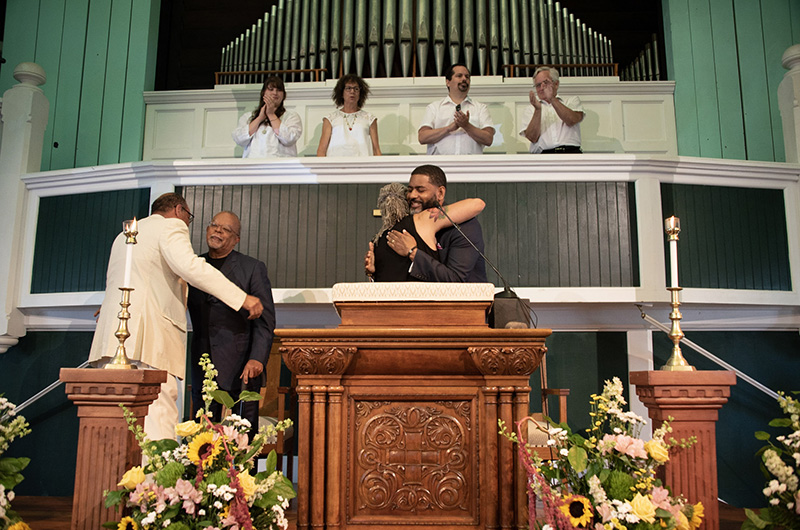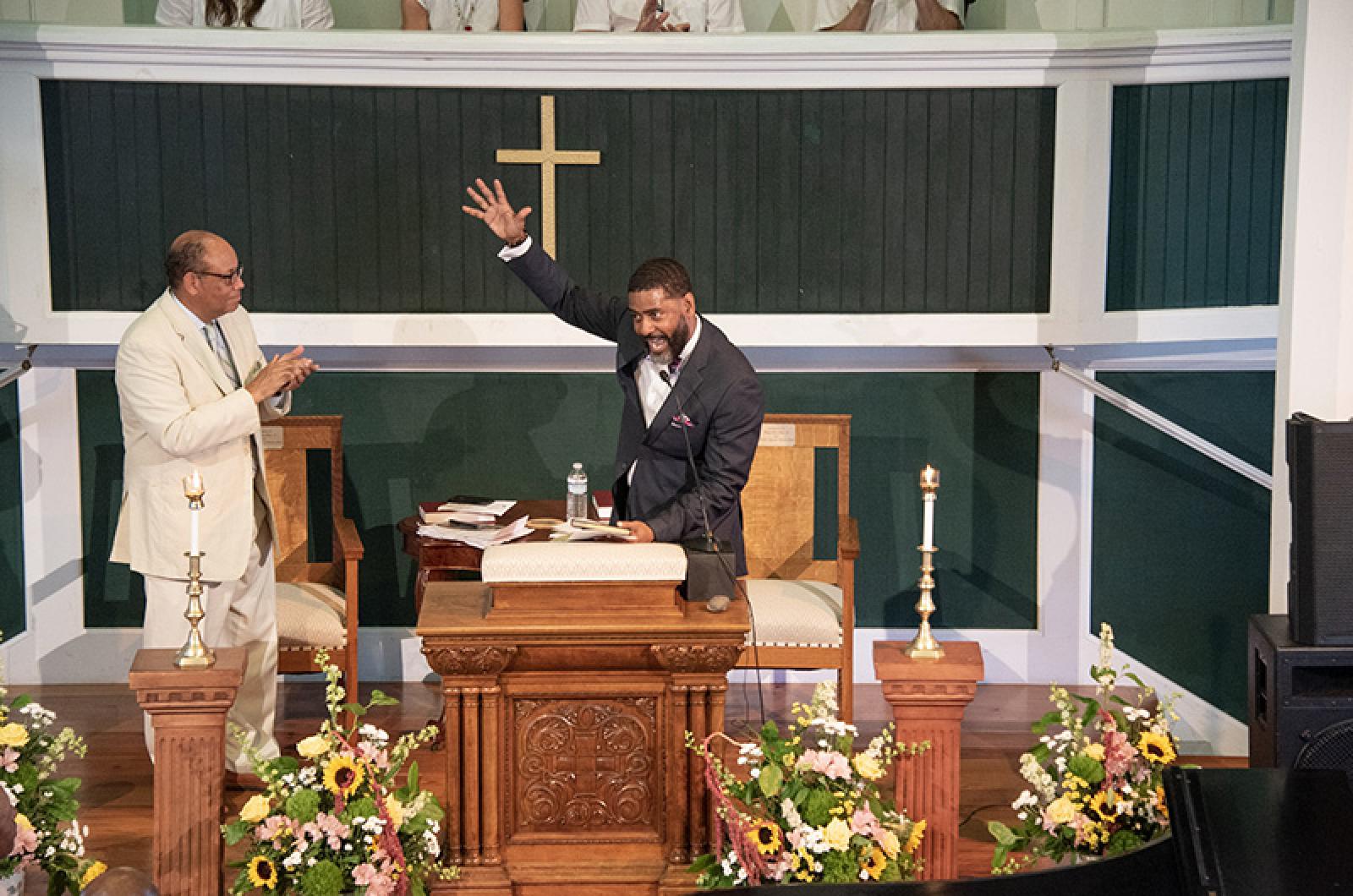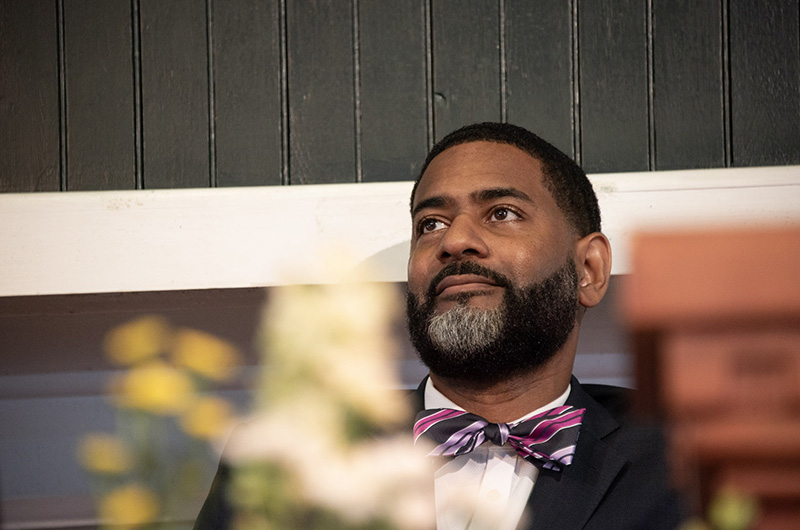On Jan. 6, 1961, U.S District Court Judge W. A. Bootle ordered the immediate admission of two black students to the University of Georgia, ending 160 years of segregation at the school. Henry Louis Gates Jr., now the Alphonse Fletcher University Professor and Director of the Hutchins Center for African and African American Research at Harvard University, was 10 years old when he saw the event play out on television.
“I was sitting in my living room watching the evening news with my mother and father,” Mr. Gates recalled. “I saw two black people: a tall, young lawyer who had recently graduated from Howard University, and a beautiful young coed whom he was accompanying through these lines of people who were shouting racial slurs, grimaces on their faces ... And my father said to me, I want you to grow up to be as courageous as that man and woman.”
The two people were Vernon Jordan and Charlayne Hunter-Gault. The former would go on to a proud career in law, business and public service, fighting for civil rights and advising Clinton administration. The latter would go on to have a distinguished career in journalism as a foreign correspondent and NPR broadcaster.
“It never occurred to me that I would meet them,” Mr. Gates said.
But 58 years later on Martha’s Vineyard, Mr. Gates not only has had the chance to meet Mr. Jordan and Ms. Hunter-Gault — they have become two of his dearest friends and community members, all three brought together by professor Evelyn Brooks Higginbotham and their appreciation for historic Union Chapel in Oak Bluffs.
Two Sundays ago, in front of a packed house at the church, Mr. Gates had the opportunity to dedicate the chapel’s sitting table to Ms. Higginbotham and the chapel’s lectern to the two people he saw on the television over half a century prior — all of whom have served as lifelong inspirations since.
“It was one of the most moving experiences of my life,” Mr. Gates said.
Union Chapel is nearly 150 years old, an integrated, interdenominational house of worship in the heart of Oak Bluffs. Like the town itself, the church has a diverse and vibrant congregation that comes alive during the heat of summer, inviting pastors that travel from every corner of the United States to raise the ancient shingled roof off its iconic, octagonal walls. It’s a place of healing, harmony, devotion and dedication. It’s a place of East Choppers, West Choppers, Highlanders and off-Islanders, ranging from the devoutly religious to the occasionally spiritual. It’s unlike anywhere else in the country.
“In my experience, it’s totally unique,” Mr. Gates said. “And it’s made up some of the most successful African Americans in the United States. But it’s integrated economically and racially. I feel at home there, and whenever I come late people scooch over and make a seat for me.” He continued:
“God has a thousand names and a thousand faces, the old saying goes. And no matter your face, everyone is welcome at Union Chapel.”

That has been more true than ever this past summer, as deacons have had to ship in new chairs and set up speakers on the lawn to accommodate the chapel’s enormous Sunday sermon crowds. Dr. Martin Luther King Jr. used to make the point that 11 a.m. — the church hour — was the most segregated time in America. But at Union Chapel, the sermons start at 10. Seats begin filling up at nine, occupied by people of every creed and color.
“I don’t know of a place that has this kind of unity of purpose, that also has a broad demographic mix,” chapel president Richard Taylor said. “For most people it is an experience that they have no other place than on the Vineyard. And we are very proud of that.”
This past winter, Mr. Taylor noticed that the historic lectern and sitting table were in desperate need of repairs. He reached out to Mr. Gates, who had previously dedicated the chapel’s bishop chairs to his parents, about making another dedication. Although unsure initially, it soon became obvious to Mr. Gates that he wanted to honor three people who had helped to make the chapel a special place to worship — not just for him, but for the entire kaleidoscopic Oak Bluffs summer community.
“It just came to me in the middle of the night one night,” he said. “The perfect combination should be Vernon and Charlayne for the lectern since both are such prominent public figures. Charlayne inspired my own career. Vernon is probably second to Barack Obama as the most powerful black person of our time because he integrated the corporate boardroom, Wall Street, and then played a key role in the selection of several black CEO’s as the heads of Fortune 500 companies. And Evelyn has written the definitive book on the role of black women in the Baptist church. So, I thought, those three would be perfect.”
Mr. Taylor and Mr. Gates worked out the five-figure donation for the furniture pieces and set a date to dedicate them. They chose August 11, the day famed Chicago pastor Otis Moss 3rd was scheduled to speak at the chapel. On the appointed day, more than 600 parishioners filled the pews and spilled out onto the lawn for the sermon. They came knowing Mr. Moss’s sermon would bring the house down. They had no idea the dedication would bring it together.
“It was something of a surprise,” Mr. Taylor said. “The place just erupted.”
Mr. Gates began with remarks about the importance of the chapel as an integrated house of worship. Then Ms. Hunter-Gault and Ms. Higginbotham came to the pulpit and made remarks of their own. Everything was filmed as part of Mr. Gates’s new PBS special about the black church in America.
“And everybody cried,” Mr. Gates said.
Many decades ago, it was professor Higginbotham who originally introduced Mr. Gates to Union Chapel. He has since come to view the ethereal, gabled building just south of Circuit avenue as his own church, with a heartening sense of interracial community and unrivaled preacher series. Although Mr. Gates cannot attend every weekend, Ms. Hunter-Gault never skips a Sunday — a seat with her name on it is always ready. Now she has a lectern with her name on it too.
“It’s a place that I go to for healing and for sustenance,” Ms. Hunter-Gault said. “And I think that it will mean a lot to me to go there and to know that there will be people in the future who will know about that, and hopefully that will lead them to understand my life a bit . . . His words went straight to my heart.”
Vernon Jordan wasn’t just Ms. Hunter-Gault’s escort through the courthouse back in 1961. He was the junior lawyer who was working with future federal judge Constance Baker Motley to scour the University of Georgia’s admission records for white students admitted with the same profile as Ms. Hunter-Gault. As history would have it, Mr. Vernon found them, and in so doing laid the groundwork for future civil rights litigation throughout the 20th and 21st century.
The work done in the early 1960s for desegregated universities has allowed for integrated spaces like Oak Bluffs, and particularly Union Chapel, to flourish in a country that remains divided. Ms. Hunter-Gault spoke about the Balm of Gilead after the dedication, describing how the chapel served as a personal balm for her and for others who come during the summer. But even more broadly, it also acts as a salve, helping heal the scars of history in a place where those who were once apart can now come together.
Unlike the steps of the Georgia courthouse in 1961, there are no grimaces when Mr. Jordan and Ms. Hunter-Gault walk through the doors of Union Chapel today. There are no racial slurs being shouted at them. There is warmth. There is openness. And most of all there is unity. Those are the values that Ms. Hunter-Gault, Mr. Gates and all Union Chapel parishioners share. They aren’t necessarily religious. They aren’t necessarily spiritual. But they are human. And they are universal.
“Our country, it is not a perfect union. And we are not perfect beings,” Ms. Hunter-Gault said. “But we strive toward perfection.”








Comments (5)
Comments
Comment policy »